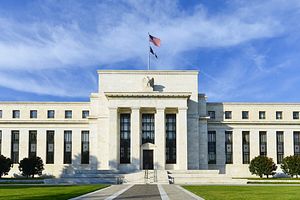Chinese Finance Minister Lou Jiwei warned that the United States should not raise interest rates, given slow economic growth in emerging markets. Although growth is rebounding in the U.S., growth in the eurozone and in China has been remarkably slow. The dollar remains the largest reserve currency in the world, and raising interest rates would increase the cost of international loans and push up the value of the dollar with respect to other currencies, as capital flows into the U.S. searching for higher yields.
Lou’s warning highlights the fact that the U.S. is at the center of the global economy, since the dollar and dollar-based assets are widely used. The IMF issued the same warning in July of this year, stating that raising rates could slow growth, and asking that the U.S. Federal Reserve wait until 2016 to increase interest rates. World Bank Chief Economist Kaushki Basu made similar comments in September, focusing on anxieties with regard to China’s devaluation and uncertain growth outlook. The world has requested that the U.S. take into account international interests rather than focusing solely on the domestic economy in this critical monetary policy decision.
The impact of changes in U.S. monetary policy on international growth is well documented. Research has underscored the fact that an increase in U.S. real interest rates results in a decline in economic activity in emerging markets. Interest rate increases are transmitted across Asia, Latin America, Europe, and Oceania. The ways in which interest rate hikes are transmitted differs, and this may occur through pass-through to domestic interest rates, through the carry trade, and through exchange rates. The changes may occur as a result of interest rate differentials between the U.S. and other countries, making the U.S. look more attractive to investors, and/or as a result of an increased climate of risk. The transmission processes are myriad and complex, but the bottom line is that rising interest rates in the U.S. adversely affect growth in emerging markets, and this is a big concern right now since China’s growth appears unstable.
Despite the warnings about negative impacts on emerging markets, especially China, it is highly likely that the U.S. will raise interest rates this year, given impending inflation and the threat of speculation in the face of excessively loose monetary policy. One of the most important duties of the Federal Reserve Chairperson is to set expectations regarding monetary policy to reduce uncertainty in financial and real markets. Federal Reserve Chairwoman Janet Yellen has made the case for raising short-term interest rates this year repeatedly; she is unlikely to abandon this path.
What this means for China and other regions of flagging growth is that they must account for this expected interest rate increase in the U.S. in all of their economic policy measures. Leaders should guard against capital flight, help to reduce or ensure interest payments for dollar-denominated loans, and consider implementing innovative monetary policy measures themselves. While warning against the U.S. interest rate hike signals concern over wobbly global growth, it is unlikely to change Federal Reserve policy and likely to raise anxiety among emerging markets. Hence these warnings may have unintended consequences of unnerving markets and dampening economic activity. One can only hope that sufficient strides will be taken to counter this malaise.

































